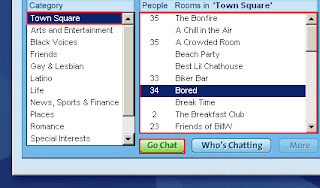My father bought me my first computer, an Apple IIg, when I was just five years old. It still had a greenish-brown screen and used 8” floppy disks to run the software. I used it solely to play video games such as “Where in the World is Carmen Sandiego?” and “Space Invaders”, or to learn how to type using a program called “Mavis Beacon Teaches Typing”. I could only do these types of things with the computer at that time because there was no internet capability available for the Apple IIg back in 1984. It would take a little over a decade before internet access was available for our mainstream use
 .
.
 .
.In 1994, I was a freshman in high school and my best friend happened to have a desktop PC that used a dial-up modem to log onto the internet. It was a 28.8k modem connection which seemed to take about an hour to sign in with AOL while it blared what might have been the most annoying sound ever invented at top decibels. If I was lucky enough to log on to the internet without getting booted out at the sign in page, I would end up on a Netscape Navigator browser with limited text and even more limited graphics. This browser was a lot like Vannevar Bush’s “memex” where he described it as “a device in which an individual stores all his books, records, and communications, and which is mechanized so that it may be consulted with exceeding speed and flexibility.”
There was a very minimal amount of sites to surf at that point and time, it seemed as though it was mostly news sites with a few shops online. The online commerce was nothing like it is now. Back then you still had to call their landlines or send them a check to make your purchases since PayPal and online shopping carts were not readily available features. Most of the online stores at that point seemed to be more niche market-oriented, selling harder-to-find and more specialized products too.
It seemed like most of my time was spent in chat rooms via AOL. There were “rooms” designated by certain topics of interest where you could go and chat with other people who supposedly shared that interest. There were even caps as to how many people could be in that room at a certain time. Sometimes if you really wanted to get into a certain room, you would have to wait in line until the number of people dropped so that you could jump into the conversation. The chat rooms started off as public arenas, but you could always turn the conversation into a private instant messaging if so desired. Chatting was an expensive hobby though, back in the early 1990’s, you had to pay per minute of online usage instead of the flat monthly fees we pay now. Our parents had to cap our internet usage, otherwise they would end up with a several hundred monthly phone bill that they were never pleased to receive.
After the novelty of AOL chat rooms and instant messaging wore off, we tried to do things like watch one of the ten videos that were online, but it usually took forever to buffer and we would never get to finish watching anything in full. We spent some time looking up information in encyclopedia-like sites for school research, but that usually took longer to search through than it did to drive to the library and find the information in books, so we didn’t use that resource too often.
A few years down the road, we started using peer-to-peer programs to search music. One of the initial sites we used to use was called KaZaA. We used this program to download individual MP3 songs, because full albums usually took two to three days to finish downloading. We would then have to burn the MP3s onto CDs at that time because we didn’t have portable MP3 devices like we do now to listen to them on.
Looking back on this life-altering technological innovation, I think that the introduction of the internet was more in the pessimistic direction like the views of Hawthorne. When I first started experimenting with the internet, I would spend countless hours locked away in a room glued to the computer, which I normally would have spent socializing with friends or family. I still kept a somewhat active life outside of the internet, pursuing other social activities that did not involve it in any way. The same cannot be said for younger generations though I don’t think. I have found that people under the age of twenty-five find it very difficult to have a social life that does not involve the internet in one manner or the next. Everywhere I go, I see students chatting on Facebook in class on their laptops, or people leaving messages online instead of face-to-face. I think that Nathaniel Hawthorne summed it up best by saying “The effects will be more perceptible on our children, and the generations that shall succeed them, than on ourselves, the mechanism of whose life may remain unchanged, though its spirit be far other than it was”.





No comments:
Post a Comment